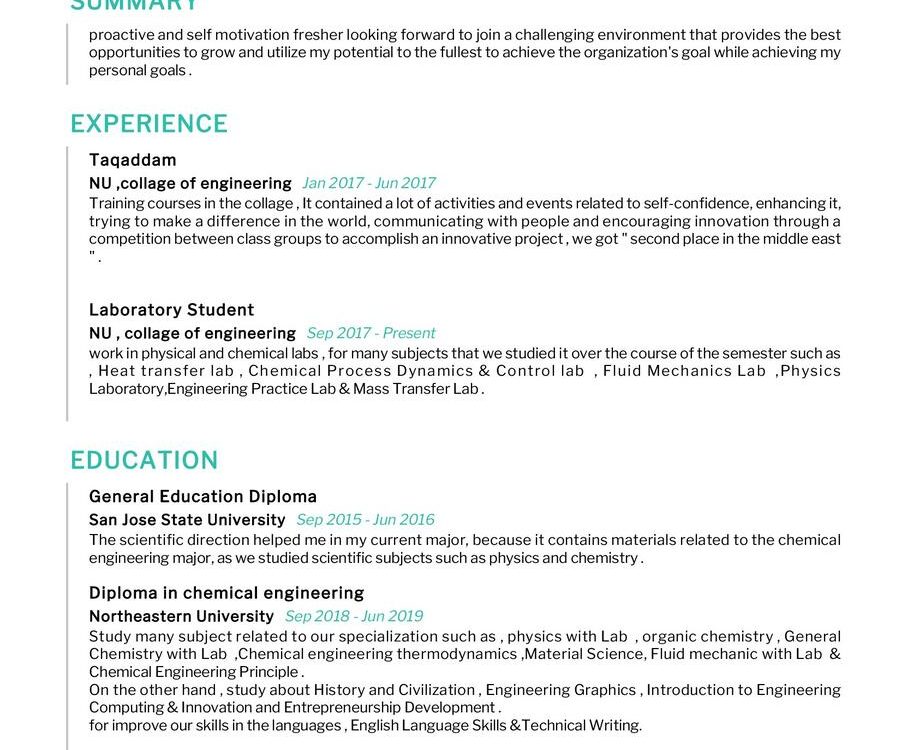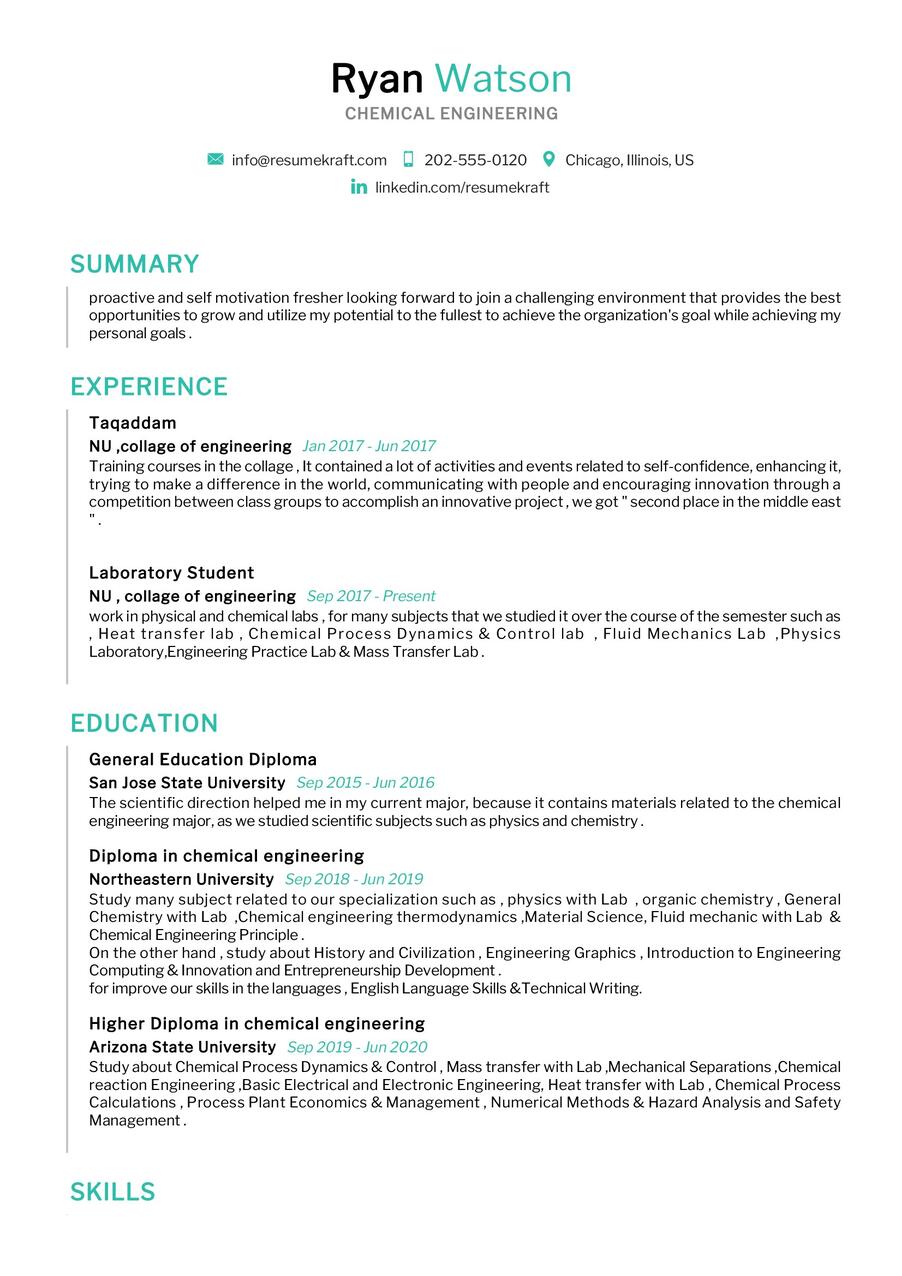Exploring the Dynamics of a Chemical Engineering Career
As the world continues to advance in technology and industry, the role of a Chemical Engineer has become integral to shaping our modern society. In this article, we’ll dive into the multifaceted world of Chemical Engineering, exploring the responsibilities, qualifications, and essential skills required for success in this dynamic field.
Understanding the Role of a Chemical Engineer
Chemical Engineers play a crucial role in designing, developing, and optimizing processes for the production of various chemicals, materials, and energy. The intersection of chemistry, physics, biology, and mathematics forms the foundation of their work. Let’s delve deeper into the responsibilities that define the role of a Chemical Engineer:
- Designing and implementing processes for large-scale chemical manufacturing.
- Conducting research to develop new manufacturing processes and materials.
- Ensuring compliance with safety and environmental regulations in all phases of production.
- Optimizing existing processes for increased efficiency and cost-effectiveness.
- Collaborating with other engineers and professionals to develop interdisciplinary solutions.
- Troubleshooting and resolving issues in production processes.
As a Chemical Engineer, the ability to blend scientific knowledge with practical application is key to success in this challenging and rewarding field.
Qualifications and Educational Background for a Chemical Engineer
Embarking on a career in Chemical Engineering requires a solid educational foundation and a commitment to continuous learning. Here are the essential qualifications and educational milestones typically associated with this profession:
- A Bachelor’s or Master’s degree in Chemical Engineering, providing a comprehensive understanding of the core principles and theories.
- Proficiency in mathematics and chemistry, forming the basis for the analytical and problem-solving skills needed in this field.
- Hands-on experience with laboratory work and research projects, cultivating practical skills essential for real-world applications.
- Knowledge of industry-specific software and tools used in process simulation and optimization.
- Internships or co-op experiences in chemical manufacturing facilities, offering valuable insights into the day-to-day challenges of the profession.
- Strong communication and teamwork skills, as Chemical Engineers often collaborate with professionals from diverse backgrounds.
By combining academic achievements with practical experiences, aspiring Chemical Engineers can build a strong foundation for a successful career.
Key Skills for Success in Chemical Engineering
Success in Chemical Engineering is not only reliant on academic qualifications but also on a diverse set of skills. Let’s categorize these skills into soft skills and hard skills:
Soft Skills:
- Communication and interpersonal skills for effective collaboration with team members and stakeholders.
- Problem-solving abilities, enabling engineers to address challenges and optimize processes.
- Attention to detail, ensuring precision in the design and execution of chemical processes.
- Adaptability and resilience, traits necessary to navigate the evolving landscape of the chemical industry.
Hard Skills:
- Proficiency in chemical process simulation software, such as Aspen Plus or CHEMCAD.
- Understanding of safety protocols and environmental regulations governing chemical manufacturing.
- Knowledge of materials and their properties, crucial for selecting the right substances for specific applications.
- Quantitative analysis skills, including the ability to work with complex mathematical models.
- Project management skills for overseeing the implementation of new processes or improvements.
These skills collectively empower Chemical Engineers to excel in their roles, contributing to advancements in technology and innovation.
Crafting an Outstanding Chemical Engineering CV
Your CV is a powerful tool in showcasing your qualifications and experiences to potential employers. Here are some tips to help you create a standout Chemical Engineering CV:
- Highlight academic achievements, emphasizing coursework and research projects that demonstrate your expertise.
- Showcase internships or co-op experiences, detailing specific contributions and skills developed during these opportunities.
- Quantify achievements where possible, such as improvements in process efficiency or successful project completions.
- Include relevant certifications, especially those related to safety protocols and industry-specific software.
- Customize your CV for each application, tailoring it to the specific requirements of the job.
Your CV is not just a document; it is a reflection of your capabilities and potential as a Chemical Engineer.
Preparing for a Chemical Engineering Interview
Success in landing a Chemical Engineering position often hinges on a strong interview performance. Here are some tips to help you prepare effectively:
- Research the company thoroughly, understanding its values, projects, and industry position.
- Be prepared to discuss specific projects or challenges you’ve encountered in your academic or professional experience.
- Showcase your problem-solving skills by describing how you’ve overcome obstacles in your previous roles or projects.
- Highlight your teamwork and communication skills, emphasizing instances where collaboration led to successful outcomes.
- Prepare questions to ask the interviewer, demonstrating your genuine interest in the company and the role.
By approaching the interview with confidence and a well-prepared mindset, you can increase your chances of securing the Chemical Engineering position you aspire to.
Key Takeaways for Your Chemical Engineering CV and Interview
As you navigate the path towards a successful career in Chemical Engineering, keep these key takeaways in mind:
- Build a strong educational foundation complemented by practical experiences to enhance your credibility.
- Develop a diverse skill set that combines technical expertise with essential soft skills for effective collaboration.
- Craft a compelling CV that highlights your achievements, skills, and potential contributions to prospective employers.
- Approach interviews with confidence, showcasing not only your technical abilities but also your interpersonal skills and problem-solving mindset.
Utilize resources like AI CV Builder, CV Design, CV Samples, CV Examples, CV Skills, CV Help, CV Synonyms, and Job Responsibilities to create a standout application and prepare for the Chemical Engineering job interview.


